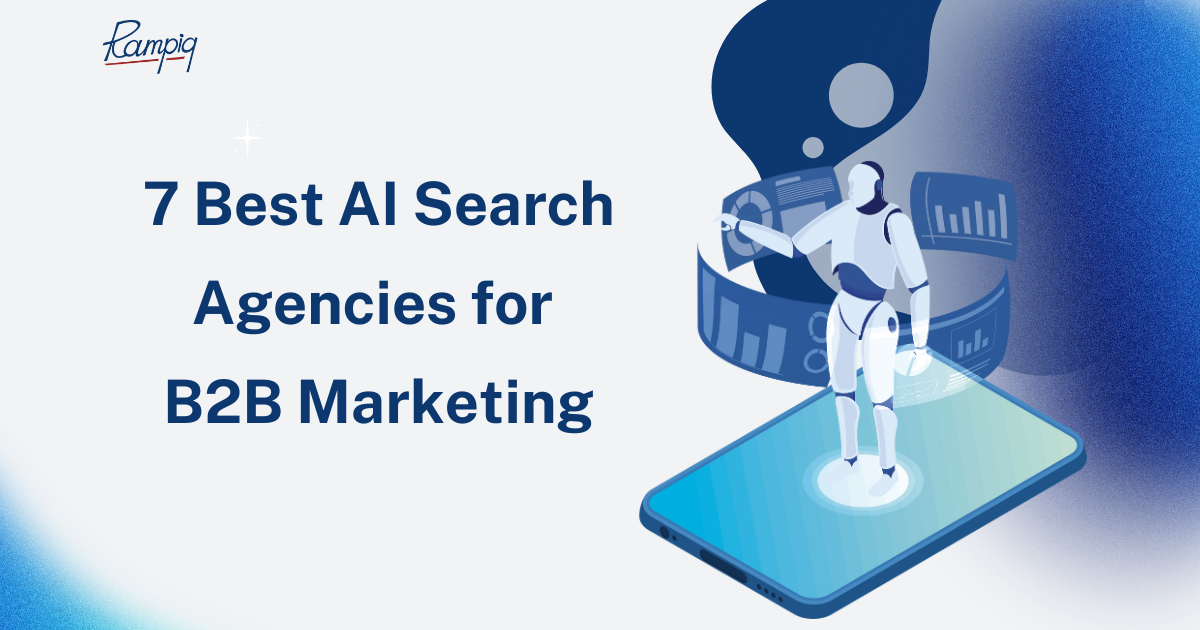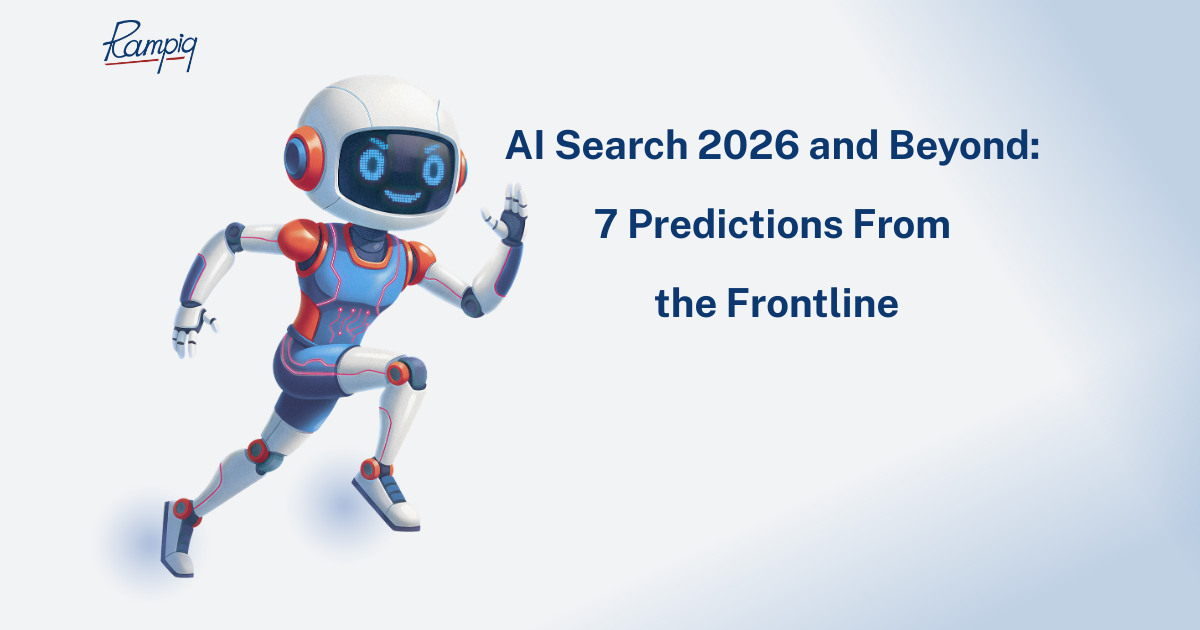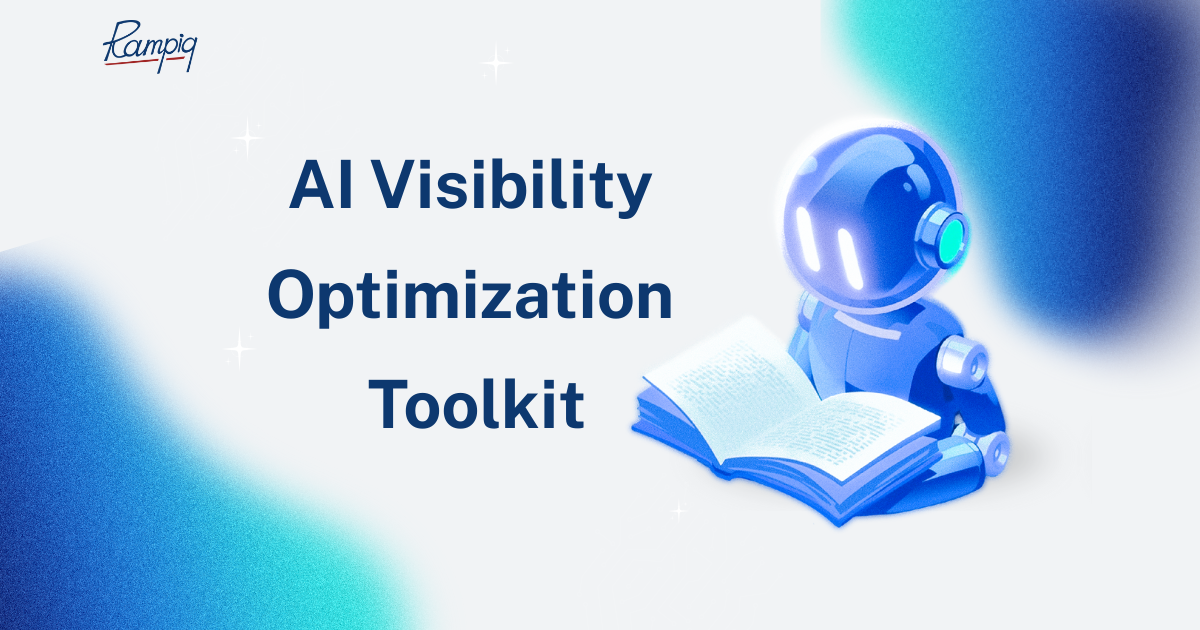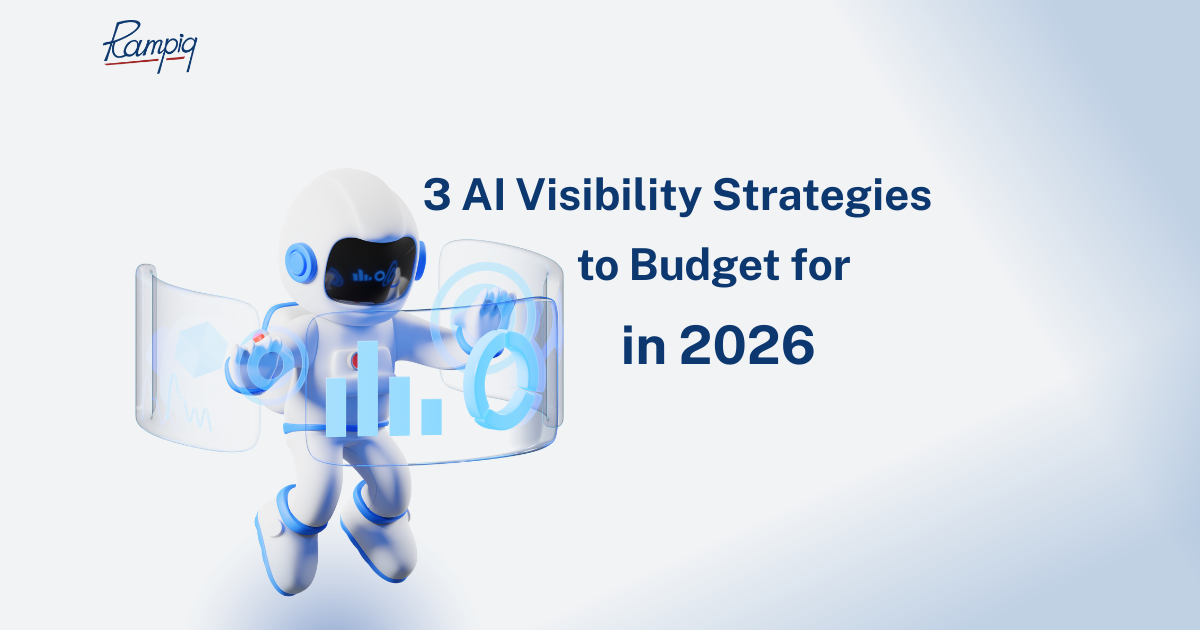What is the best CRM for SaaS Businesses?
There is no outright best CRM for SaaS, the most suitable CRM largely depends on your specific operation and size. For example, Microsoft D365, Salesforce, and SAP are more enterprise-level platforms, while Pipedrive, Zoho, and Hubspot are scalable solutions that are favored by small and medium-sized businesses.
We have come up with a few household names that merit your attention if you are on the hunt for a solution for your SaaS business. I will review the following CRMs in this section:
- Hubspot CRM: Best for small and medium-sized businesses
- Microsoft Dynamics 365: Best for SaaS business features
- SAP CRM
- Pipedrive CRM
- Zoho CRM
Hubspot CRM: Best for small and medium-sized businesses
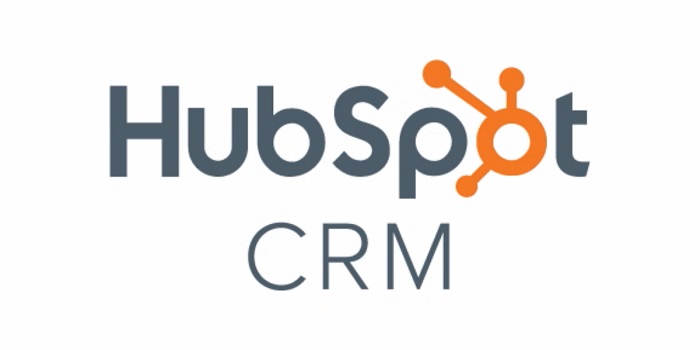 Hubspot is the most popular CRM for small and medium-sized companies. It has a free version, always a welcome starting point for those that want to first test the waters before they gradually commit.
Hubspot is the most popular CRM for small and medium-sized companies. It has a free version, always a welcome starting point for those that want to first test the waters before they gradually commit.
Hubspot has features for blogging, email campaigns, and social media marketing. You can also use it to make search engine-optimized landing pages and automate your sales process.
You can use Hubspot CRM to create email drip campaigns, segment your leads based on how they’ve interacted with your content, segment your leads, and track their progress through the sales funnel. The tool also has built-in lead scoring, lead nurturing, email marketing automation, and automated reporting to help you make data-driven decisions about how to improve your marketing strategy.
The software integrates with over 100 apps and services including Google Apps, Zendesk, MailChimp, Salesforce, Slack, and more. The Hubspot CRM interface is simple, intuitive, and customizable, based on your company’s leads. And you get access to training videos that will help you learn how everything works quickly so you don’t have any trouble getting started with it right away.
Key Hubspot CRM Features
- Free version available
- Built-in lead management functionalities: Hubspot features a robust suite of tools for managing leads and contacts, including lead capturing, lead scoring, lead nurturing, and tracking.
- Customizable dashboards: You can create customized dashboards to display all the most important metrics for your business.
- Real-time notification: Hubspot provides real-time notifications for vital occurrences. For example, it notifies you as soon as a new lead enters your sales pipeline.
- Team management and collaboration
- Detailed reporting: Hubspot gives you a wealth of detailed reports, such as pipeline reports, lead scoring, and custom reports.
- Integrations with business tools, such as Slack and Google Calendar.
- Email tracking, templates and documents, and Gmail and Outlook integration
HubSpot
Microsoft Dynamics 365: Best for SaaS business features
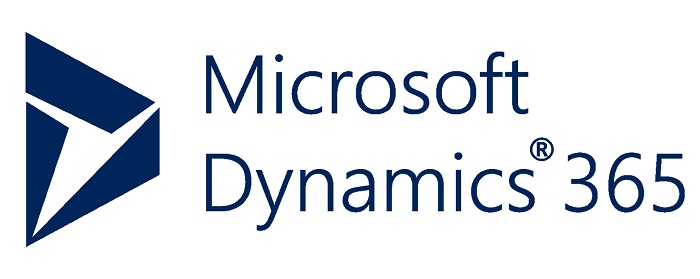 Microsoft Dynamics 365 is a modular solution that offers both CRM and ERP capabilities for different types of businesses but is favored by large organizations.
Microsoft Dynamics 365 is a modular solution that offers both CRM and ERP capabilities for different types of businesses but is favored by large organizations.
There are options for marketing, event planning and budgeting, features for promotions, analytics, and more.
Sales teams can benefit from Sales Playbooks – custom-designed sales paths that are kickstarted by preset actions, which are implemented one after the other, based on a predefined scenario.
For customer service, there are automated call transcripts, sentiment analysis, and a lot more.
Pricing is dependent on which modules you choose to implement and is calculated per user per month.
Key Microsoft Dynamics 365 Features
- Email marketing: Microsoft Dynamics integrates seamlessly with Microsoft Outlook, giving you the power to access your CRM data from within Outlook.
- Scheduling: This feature allows you to schedule appointments with customers and clients.
- Lead management: You can track and manage leads, score leads, and follow up with them to turn them into opportunities.
- Financial analysis tool: This Dynamics 365 tool enables users to easily record, store, and manage financial operations and workflows.
- Visual editor: This CRM sports a visual editor where you can draw graphs, charts, and workflows to visualize your performance.
- Smart maintenance: As you use this CRM, it recommends helpful strategies based on gathered data from your business.
- Full integration with Microsoft products
- Advanced analytics tools (Power BI and Cortana Intelligence)
- Unlimited number of users or seats.
- Features advanced AI-powered tools to help you forecast your sales, automate tasks, and analyze data.
- dedicated sales, Marketing, Service, Finance, Commerce, and Supply chain modules
- Microsoft marketplace with apps, add-ons, and content packs (AppSource)
- Azure IoT for monitoring IoT device data
Microsoft Dynamics 365
Salesforce
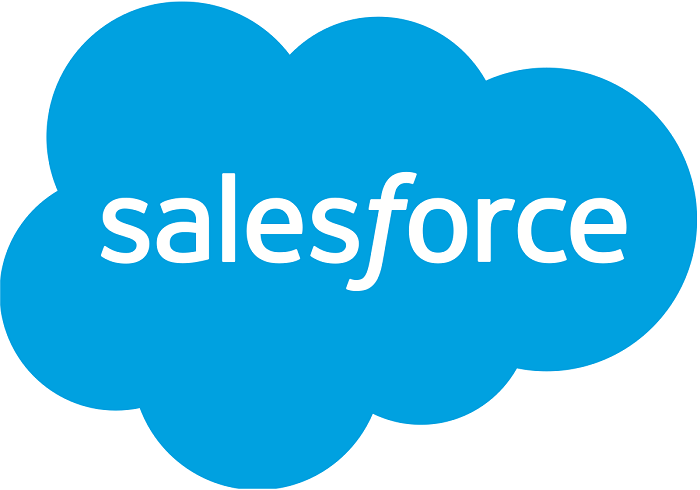 Salesforce CRM is the most popular customer relationship management software for small businesses, and it’s often used by SaaS companies. It allows you to manage your entire customer experience in one place. You can record leads, follow up with them over email or phone calls, and automate your marketing efforts by setting up automated emails for each stage of the funnel.
Salesforce CRM is the most popular customer relationship management software for small businesses, and it’s often used by SaaS companies. It allows you to manage your entire customer experience in one place. You can record leads, follow up with them over email or phone calls, and automate your marketing efforts by setting up automated emails for each stage of the funnel.
The platform also makes it easy for sales teams to work together by sharing their schedules and goals with one another. Salesforce CRM also allows teams to share documents and files directly from the platform so they don’t have to worry about switching apps while they’re working together on a project.
Like Microsoft D365, Salesforce offers features for different use cases. Marketing can benefit from journey builders that will help you enrich customer interactions across different platforms during the customer journey.
Einstein AI enables you to automate different processes, including certain actions that make life easier for sales reps.
Activities like creating new contacts, and making assessments and evaluations of leads. For customer service, there are AI-powered chatbots that help your customers quickly deal with frequently encountered issues.
Salesforce pricing is also dependent on the modules you pick.
Key Salesforce Features
- Real-time insights: With Salesforce, you can learn about your team’s performance in real-time, in order to make adjustments to your processes before it’s too late to recover lost leads or revenue.
- Lightning App Builder: Create custom pages quickly and easily using Salesforce Lightning App Builder.
- All-in-one solution—Salesforce offers a variety of features builtin, and this lets you limit the number of separate tools you need for effective marketing and sales.
- Configurable out-of-the-box analytics: One of the reasons Salesforce is quite popular is because of its easy setup. They also publish easy-to-follow guides to help with configuration.
- Integration: It features extensive integration functionalities that allow you to export/import Salesforce data with your other systems, such as QuickBooks or Slack.
- Einstein (AI) Analytics: This is Salesforce’s cloud-based tool that lets users analyze, understand, and streamline data from different locations. Read more about Salesforce Einstein.
- Social media management dashboard – The social media management dashboard allows you to monitor your social media accounts from one place, where you can respond to comments and messages from users with ease.
- AppExchange: This is the Salesforce inbuilt marketplace where you can find and integrate addon tools to personalize your experience with the CRM or extend its functionalities.
- Email marketing automation
- Trailhead module-based learning center
- Mobile app
Salesforce
SAP
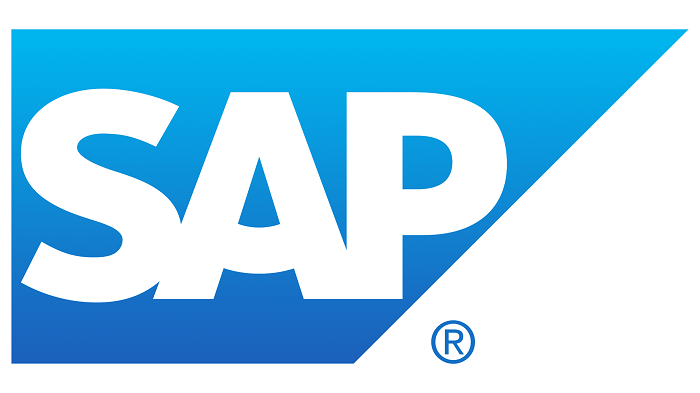 SAP CRM is another cloud-based CRM software that’s popular among SaaS businesses. It has a lot of features, but it’s particularly useful for sales and marketing teams because it helps them create leads, manage relationships with customers, and even automate processes like email campaigns.
SAP CRM is another cloud-based CRM software that’s popular among SaaS businesses. It has a lot of features, but it’s particularly useful for sales and marketing teams because it helps them create leads, manage relationships with customers, and even automate processes like email campaigns.
It also has integrations with other products, such as Salesforce and Microsoft Dynamics 365.
The ability to connect these platforms makes it easy for salespeople to use SAP CRM as part of their daily workflows without needing to switch between different tools or systems.
SAP CRM is powerful for SaaS companies, as it allows for the centralization of customer data, streamlining of customer management processes, and building of custom dashboards. In addition to this, SAP CRM offers features such as cross-sell and up-sell suggestions, which can help you increase revenue by suggesting additional products or services to your customers.
SAP offers Machine Learning tools that analyze your customers’ and site visitors’ behavior to automatically create personalized offers. An excellent feature for the marketing toolbox.
For sales, there are intelligently managed quotas based on sales predictions and prioritized territories.
Your service staff can be freed from dealing with non-essential matters by the automated feature that serves customers based on interaction history and other records.
Key SAP CRM Features
- Financial Management
- Sales and Customer Management
- Purchasing and Inventory Control
- Business Intelligence
- Analytics and Reporting
SAP
Pipedrive
 Pipedrive is a CRM set up around a fairly simple and logical workflow. You first design the different stages of your sales funnel – the pipeline – or use one of the templates provided.
Pipedrive is a CRM set up around a fairly simple and logical workflow. You first design the different stages of your sales funnel – the pipeline – or use one of the templates provided.
Once that is set up, you start to receive feedback in the form of alerts and reminders as leads and customers interact with it.
Finally, the system provides you with reports and analytics that you can use to make improvements, automate repetitive processes, and support growth.
Key Pipedrive Features
- Sales software
- Email marketing with customizable campaigns and helpful templates
- Integration with Google, Xero, Asana, Slack, Kixie, and more
- LeadBooster lead generation add-on
- Web Visitors add-on to track website interactions
Pipedrive
Zoho
 The Zoho CRM comes in two flavors, Zoho CRM Plus – is the basic version that offers 11 applications, helping you take care of marketing, sales, projects, and collaboration, while providing an all-around view of your clients.
The Zoho CRM comes in two flavors, Zoho CRM Plus – is the basic version that offers 11 applications, helping you take care of marketing, sales, projects, and collaboration, while providing an all-around view of your clients.
Zoho One is the higher-tier version, with 35 applications that add even more features – AI and BI smart features, additional customization tools, and more.
Key Zoho Features
- CommandCenter for prospect/customer journey management
- Omnichannel communication (email, telephone, social, client portals) from within Zoho
- Sales, finance, and inventory features
- Canvas Design Studio for Zoho UI customization
- AI assistant with predictive capabilities, automation, anomaly detection, and more
Zoho
Benefits of CRMs for SaaS Companies
Software as a Service (SaaS) businesses reap the same benefits from a CRM as any other type of company.
SaaS companies generally offer some kind of hosted service on a subscription basis and want to strengthen relationships with their client base, monitor the sales pipeline to close more deals and make improvements where necessary.
The ability to efficiently do this, which a CRM provides, is just as important to a SaaS business offering subscription-based services, as it is to a company that operates out of brick-and-mortar outlets selling tangible goods.
The question is how to find a solution that will actually bring these benefits.
Integrate Your Stack
We’ll ensure your CRM and marketing tools talk to each other so you have a single source of truth for customer data.
5 factors we considered when picking the best CRM for your SaaS
The choice of CRM should be driven by business requirements. This means a good CRM for one company may not necessarily provide the same value for another.
It is therefore impractical to list a set of specific features that a CRM must have in order to be considered good.
A better approach would be to look at characteristics that make CRMs easier to implement and bring benefits to different types of businesses, including SaaS companies.
Let’s take a look at standout features to bear in mind as you pick your platform.
1. Integration with other platforms
One of the most common problems businesses and organizations face is the fact that their data is spread across different platforms.
The marketing department might have its own solutions, and this data might not necessarily be linked to whatever software the sales department is using to support its operations.
The long and painful – and most likely disruptive – solution would be to replace these solutions and have the entire organization migrate to one CRM system.
A good CRM will help you avoid the costs and protracted timelines of such a drastic step by providing the necessary integration tools to allow you to keep those systems.
When looking for a CRM solution, find one that provides support for at least the essential tools your staff use – calendars on different platforms, your email clients, collaboration platforms like Slack or Microsoft Teams, and e-commerce platforms such as Shopify, to name just a few.
The CRM provider should also be able to provide technical consultation and training to support custom integration with other more specialized systems.
2. Customizability
One of the most important boxes a good CRM should check is how malleable it is. You should be able to modify it to suit your business needs and not the other way around.
Are you able to modify forms by hiding, disabling, and renaming fields?
Can you easily set up conditional logic, and display your custom content?
Can dashboards, reports, and views be changed to suit your preferences?
Does the software allow you to reorganize workflows and automate processes according to your operations?
A CRM that forces you to change the way you work to suit its design, or lacks modularity and forces you to pay for features you don’t need, is far from ideal.
Apart from the ability to integrate with the other systems you use, a good CRM should give you the ability to extend its functionality.
This could mean letting you build your features and allowing you to use APIs and SDKs to add to its capabilities, the ability to make modifications to the underlying database, and being able to configure the interface to your requirements.
3. Scalability
Ideally, a CRM should help you grow. By building those meaningful and close connections with your clients, helping you improve your efficiency, and making your organization more strategically agile, the result should be growth. Exponential growth.
With that expectation in mind, it only follows that the CRM should be able to grow with you.
You should be able to handle more and more interactions with a much larger number of clients, your platform should be able to take on more users without being slowed down and burdened by the extra load, you should be able to provide for different types of communication channels as your business grows.
Make sure you choose a CRM that scales seamlessly without disrupting your business.
4. Features for SaaS
The ability to customize your CRM, and integrate it with your own solutions does not mean the CRM itself should not have a comprehensive list of capabilities.
In fact, the customization you need to do should be minimal and only meant to complement the capabilities that come with the software. It should provide useful and powerful features right out of the box.
You can then make adjustments to finetune its alignment to your business needs. Here are ten capabilities that come standard in most solutions:
- Contact management
- Quote and order management
- Opportunity management
- Sales forecasting and automation
- Marketing campaign management
- Analytics, reports, and informative dashboards
- Customizable user interface
- Integration with different email clients
- Workflow automation
- Mobile platform version
5. Actionable Insights
The data you have is only as useful as the number of things you can do with it. What this comes down to is how efficient your CRM is at presenting your data in a way that is relevant to the user seeing it.
Your marketing team will need insights into a user’s preferences.
Did they engage with you on your website or social media?
Have they performed a call to action such as downloading a brochure or signing up for a newsletter?
This information will be useful for sales staff, who will want to know which leads should take top priority for calls, and what proposals to offer them.
Sales staff will then want to keep track of how many times they have interacted with a lead, and at what stage of the buyer’s journey the lead is. Completed sales will be useful for accounting, and so on.
The best CRMs for SaaS should not necessarily provide a complete view of a client to every stakeholder in the business but should package this information in a way that is immediately actionable for that person.
That way, the business as a whole optimizes the use of one of the most vital assets in its possession – the data.
How do I select the best CRM for my SaaS business?
Set clear expectations
Every CRM vendor touts the capabilities of their solution. To avoid getting swayed this way and that, it is important to have a clear vision of what you expect from your solution.
It then becomes that much ease to eliminate the platforms that are not capable of delivering on your expectations. What do you want your CRM to do for you, and how well can the options you encounter handle your challenges?
Explore different options
There are many vendors on the market, and the list is growing. Take your time and find the solution most aligned to your needs.
Make sure you do your due diligence at this stage, paying attention not only to the features offered, but things like the total cost of ownership when you take into account upgrades and expansions, and technical support and training with experienced professionals.
Get your team on board
Your CRM won’t do much good if it demoralizes and frustrates your staff. Ensure you get your team members to buy into the proposed solution.
They are the ones who will have to endure the change from familiar comfortable habits, to a whole new way of doing things.
Show them how it will make life easier, improve their skill set, and level up their productivity.
Set responsibilities and expectations for the implementation of the solution to ensure accountability throughout the process.
Determine your ROI
A CRM is a big investment. Management needs to be able to quantify its value. Getting the decision-makers in your organization to fully support the idea will require you to clearly show what benefits the new system will bring.
You also have to manage expectations for the period during which your company will make the transition.
That way, if there is a drop in performance just after launch, it will be expected and accounted for.
READ ALSO: Ultimate Guide to SaaS Metrics That Matter
Managing the transition to a CRM for SaaS
Your new SaaS CRM will still need quite a bit of input before you can get it running smoothly. It is crucial that you ensure you feed it with clean and well-formatted data.
You do not want things like inactive contacts to move over onto the new system, clog up your databases and skew the reports the system produces. Ensure your data is lean and clean.
Train and test
When your platform is finally live, ensure your staff is trained to make the most of its use. There should be enough guides and training materials to ensure they can find answers to the questions they will inevitably have in the beginning.
Ensure they have the technical support they need to build confidence in the new system and get them to perform at their best.
Getting the best marketing value from a CRM for SaaS
Choosing the right CRM comes down to having clarity about your objectives. Do you want to automate certain processes?
Who will be working with the system and how prepared are they for the change? If the CRM is a complex one, how comfortable are your staff with technical solutions?
How much growth are you targeting and will the system be able to scale with it? How easy or difficult will it be to implement?
Once you have a clear picture of your business requirements, you can then look for the solutions that are available with the resources you have. See product demos, and find out all you can about the solution specifically as it pertains to your business needs.
CRM for SaaS: Conclusion
Customer Relationship Management systems bring a whole raft of benefits to businesses of all sizes in varying spheres.
For SaaS companies, the rewards are similar to other types of businesses as well. However, the success of a CRM is dependent on the choice of platform and the implementation details.
With the information we have shared here – features of a good CRM for a SaaS company and examples of popular platforms, tips for choosing and implementing a good fit for your SaaS business, and things to consider before, during, and after implementation – you should be well on your way to setting up your SaaS business for success.
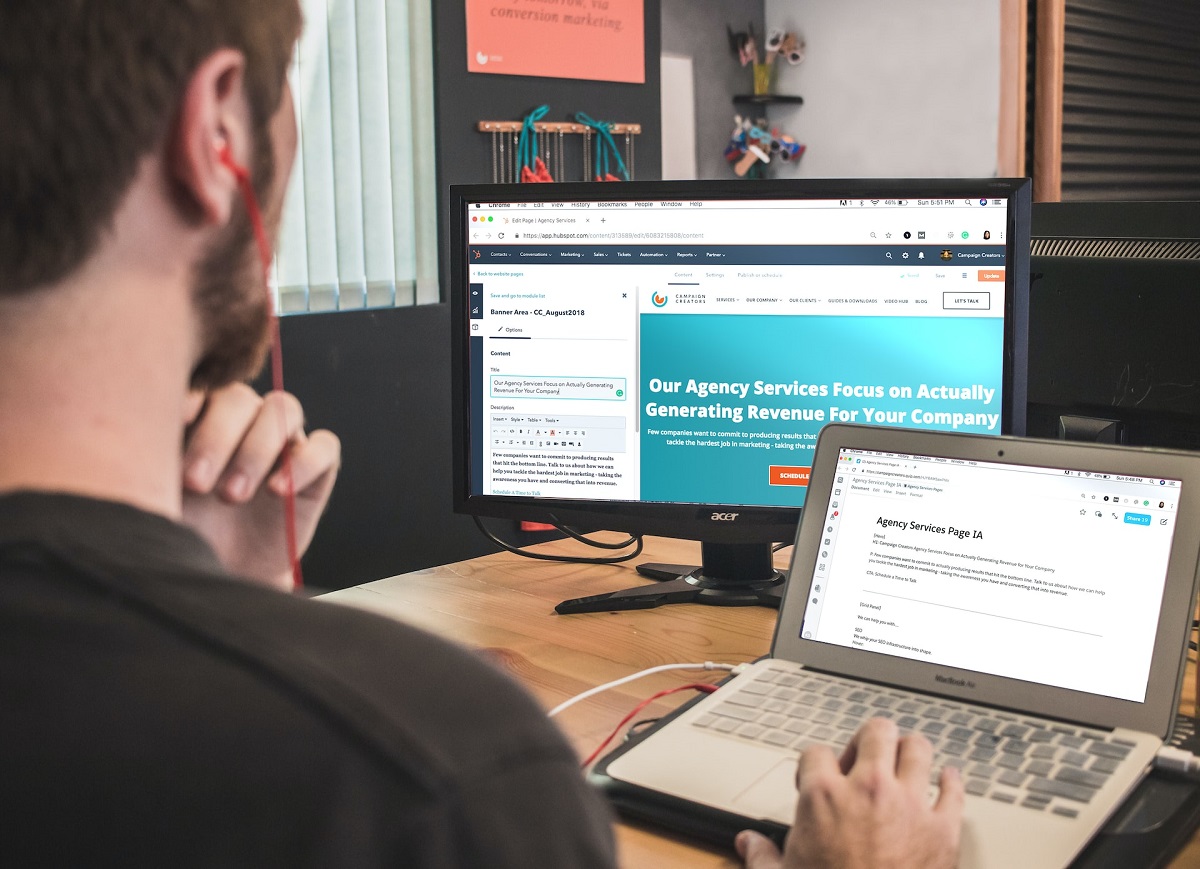
 Hubspot is the most popular CRM for small and medium-sized companies. It has a free version, always a welcome starting point for those that want to first test the waters before they gradually commit.
Hubspot is the most popular CRM for small and medium-sized companies. It has a free version, always a welcome starting point for those that want to first test the waters before they gradually commit. Microsoft Dynamics 365 is a modular solution that offers both CRM and ERP capabilities for different types of businesses but is favored by large organizations.
Microsoft Dynamics 365 is a modular solution that offers both CRM and ERP capabilities for different types of businesses but is favored by large organizations. Salesforce CRM is the most popular customer relationship management software for small businesses, and it’s often used by SaaS companies. It allows you to manage your entire customer experience in one place. You can record leads, follow up with them over email or phone calls, and automate your marketing efforts by setting up automated emails for each stage of the funnel.
Salesforce CRM is the most popular customer relationship management software for small businesses, and it’s often used by SaaS companies. It allows you to manage your entire customer experience in one place. You can record leads, follow up with them over email or phone calls, and automate your marketing efforts by setting up automated emails for each stage of the funnel. SAP CRM is another cloud-based CRM software that’s popular among SaaS businesses. It has a lot of features, but it’s particularly useful for sales and marketing teams because it helps them create leads, manage relationships with customers, and even automate processes like email campaigns.
SAP CRM is another cloud-based CRM software that’s popular among SaaS businesses. It has a lot of features, but it’s particularly useful for sales and marketing teams because it helps them create leads, manage relationships with customers, and even automate processes like email campaigns. Pipedrive is a CRM set up around a fairly simple and logical workflow. You first design the different stages of your sales funnel – the pipeline – or use one of the templates provided.
Pipedrive is a CRM set up around a fairly simple and logical workflow. You first design the different stages of your sales funnel – the pipeline – or use one of the templates provided. The Zoho CRM comes in two flavors, Zoho CRM Plus – is the basic version that offers 11 applications, helping you take care of marketing, sales, projects, and collaboration, while providing an all-around view of your clients.
The Zoho CRM comes in two flavors, Zoho CRM Plus – is the basic version that offers 11 applications, helping you take care of marketing, sales, projects, and collaboration, while providing an all-around view of your clients.